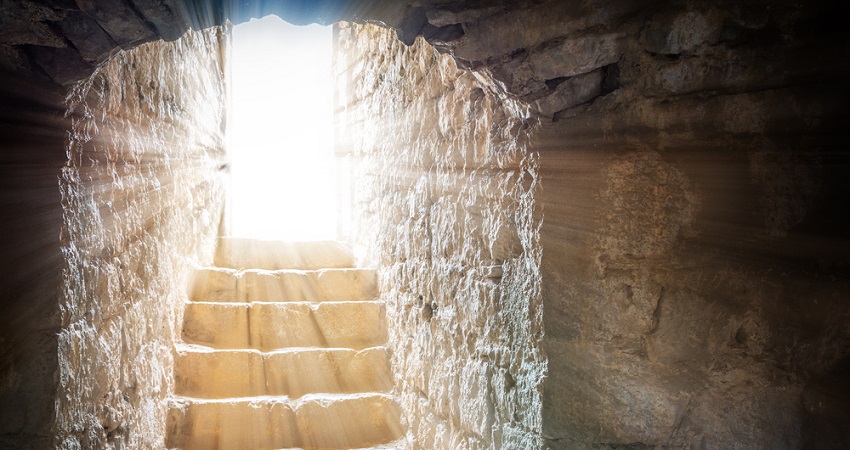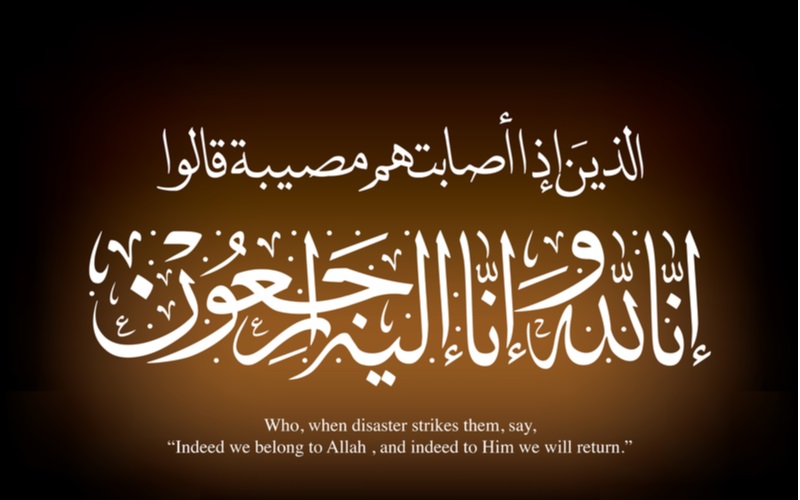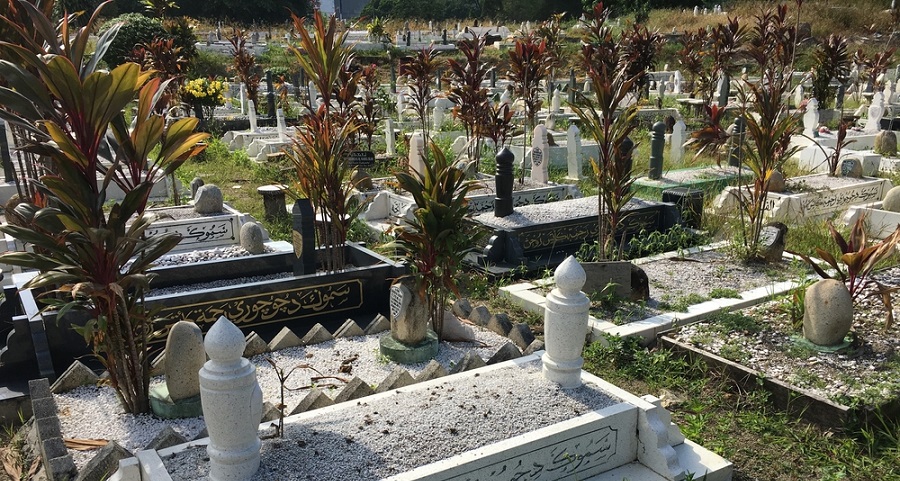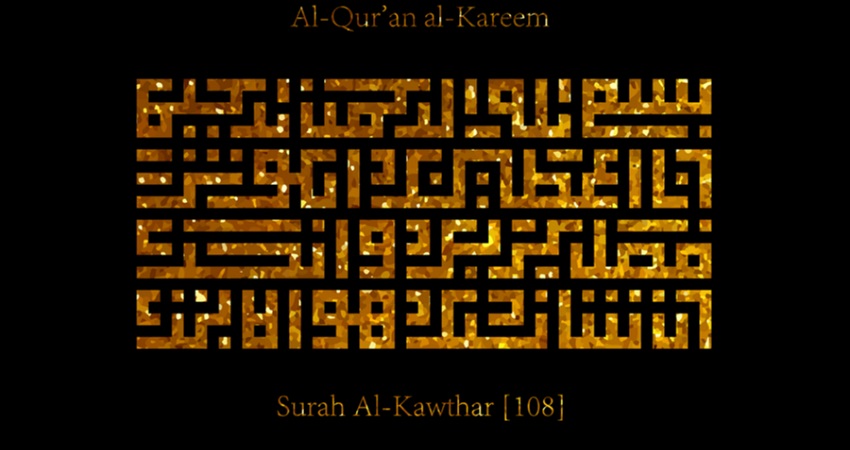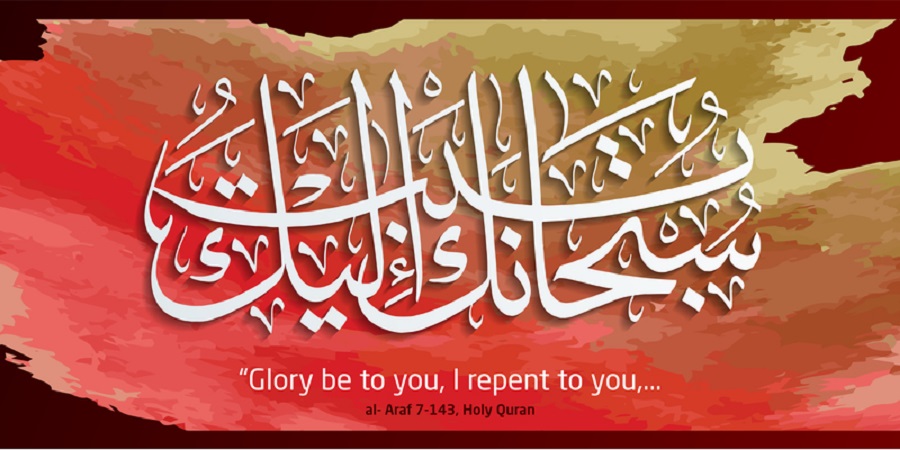Akhirah is the term for life after death in Islam. It is believed that Allah decides when an individual dies, and the deceased remain in grave until the Day of Judgement or Yawm al-din, which is the last day when Allah judges them according to the way they lived. That day, the person is lifted from the grave and is brought before Allah to be judged for their deeds. This belief is called the resurrection of the body.
In Islamic tradition, death is the separation of the soul from one’s body and the beginning of one afterlife. There are various elaborate discussions about the process and the schools of thought (three traditional schools in Islam) have different conclusions about it. The basic source that Muslims have is the Quran and the Islamic narratives. The Quran says: “Nor can a soul die except by Allah’s leave. The term being fixed as by writing.” Quran 3:145
People who perform several good deeds in the course of their life enter Jannah (Paradise). There is no pain, sickness or sadness in this place, whereas those who perform bad deeds in their life enter Jahannam (Hell). This is the place where the person endures physical and spiritual suffering. But, Muslims believe that not all bad actions or decisions are punishable as Allah is forgiving and compassionate. He will forgive those who regret their actions and have performed certain good deeds in their lifetime.
The Quran says: “Of the good that they do nothing will be rejected of them; for Allah knoweth well those that do right. Those who reject faith – neither their possessions nor their (numerous) progeny will avail them aught against Allah; they will be companions of the fire, dwelling therein forever.” Quran 3:115- 1:116
Stages Of Life After Death In Islam
As per Islam, after one is buried or eaten by animal the life after death begins. There are fourteen stages of life after death in Islam. It consists of stages like Barzakh, Qiyama, Resurrection, Reckoning, declaration of hell or heaven and several others in between. To give a more descriptive explanation of each stage; here are the 14 stages of life after death.
1. Barzakh
In Islam, it is believed that when a person dies, the soul enters the state of waiting, also known as Barzakh, until the Day of Judgement. This is the transition period between the world and the afterlife. It is a barrier or curtain between our world and the world of the dead. Even if the person’s body is burnt to ashes or is eaten by an animal, their life in Barzakh begins.
2. Blowing of the Trumpet
To start the apocalypse, Soor or the trumpet is blown by the angel Hazrat Israfel. He blows the instrument twice and resurrects the people to take them to the gathering place.
3. Apocalypse or Qiyama
This is the rise of the dead person and his or her walk towards the gathering place. In one of the Quranic verses, Allah talks about qiyama, “O mankind! fear your Lord! For the convulsion of the Hour (of Judgment) will be a thing terrible! The Day ye shall see it, every mother giving suck shall forget her suckling-babe, and every pregnant female shall drop her load (unformed): thou shalt see mankind as in a drunken riot, yet not drunk: but dreadful will be the Wrath of Allah.” (Al-Hajj, 1-2.)
4. Resurrection after death
According to the Quran, it is said that the resurrection takes place in various ways. In this stage, the dead people are lifted from their graves and are brought before Allah to be judged for their deeds. Also, the concept of resurrection after death is both bodily as well as spiritual and is not just possible but very easy for Allah.
5. Gathering Place
The next stage is gathering, where all the resurrected souls are gathered. The place where they are brought together is called the gathering place. They wait there to receive the Book of Deeds. This stage is mentioned in the Quran as well as the hadiths.
6. Receiving the Book of Deeds
In this stage, the souls are gathered together to receive the Book of Deeds. This book has records of their good and bad deeds and the exact form of the record is not known as it has not been mentioned anywhere explicitly. At this stage the resurrected souls can revisit the deeds of their lifetime.
7. Reckoning
After they receive the book, they are judged equally and according to their deeds. They are asked questions about their life based on which the judgement is made. Regarding this stage, the Quran says: “That Day will every soul be requited for what it earned; no injustice will there be that Day, for Allah is Swift in taking account”. (al-Mumin, 17.)
8. Scale or Mizan
This is the stage where the weight of the deeds is measured. If a person’s good deeds have more weight than the bad ones, then they get salvation, and if good deeds are lighter than bad deeds, they suffer punishment. It is also said that believers who go to Hell can also be sent to paradise after completing their punishment.
9. River and Pool of Kawthar
This is the pool in which the water of the river of Paradise flows. The water gathers in this pool on the Day of Judgement, and when the resurrected men are gathered, Prophet Hazrat Muhammad is given the pool of Kawthar. It is believed that whoever reaches the pool first will be made Prophet.
10. Sirat
This is the bridge across hell and everyone is meant to cross it. It stretches across hell to paradise and is constructed according to a person’s good and bad deeds. It is believed that various souls cross this bridge at different speeds.
11. Intercession
In this stage, the people who have committed certain sins ask the scholars and prophets to beg Allah for forgiveness, and those who do not have any sin ask to be raised to a higher level.
12. Purgatory
Also known as Araf, this is the place separating paradise and hell. Allah decides as to who gets to enter paradise and hell.
13. Hell
This is the place where the person with the worst deeds enters and is tortured and punished for their sins. It known as Jahannam in Islam and sinful souls are punished in different ways. However, the most commonly spoken form of punishment in Jahannam is that of burning in fire.
Suggested Read: Seven Levels of Jahannam, Also Known As The Gates Of Hell In Islam
14. Paradise
This is the place where the person with the good deeds enters and lives a comfortable life for eternity. In this place, there is no sadness, pain, excessive heat or cold. Paradise or jannah in Islam has different levels. According to the Quran, there are seven levels of heaven in Islam.
40 Days After Death In Islam
In Islam, when a person dies, the family and friends get together after seven days to hold a memorial of prayers and do charity and donations in the memory of the deceased. The same takes place after 40 days and one year of the person’s passing. They recite Quran, do charity and perform as many good deeds in the memory of the deceased as possible. Imams (leader of an Islamic worship service) suggest that after death when a person’s soul gets separated from the body, the soul lives on and visits the loved ones on the seventh and the 40th day after death. The soul also visits them after one year of passing.

Life after death in Islam
According to many Muslims, after a person dies, their soul is taken by the angel of death, Azrael. Then, two angels – Munkar and Nakir come to the grave and ask questions about the way they led their life. After the person’s death, all that is left of them is their heritable property. Muslims consider only those relatives for inheritance who are related to the deceased through a male, which include son’s son, son’s daughter and father’s mother. The heirs have a common share in the property.
Hadith on 3 deeds that continue after death
As per a hadith there are one of the 3 deeds that continue after death:
“When a human being dies all his action comes to an end except in one of three ways: A continuing act of charity, a useful contribution to knowledge and a dutiful child who prays for him.”
– Abu Dawood, Muslim, Al-Nassaie and several others
Mourning in Quran
“And those of you who die and leave widows behind, they should keep themselves in waiting for four months and ten days. Then when they have fulfilled their term, there is no blame on you about what they do with themselves in accordance with the norms [of society]. And Allah is well acquainted with what you do. And there is also no blame on you if you tacitly send a marriage proposal to these women or hold it in your hearts. Allah knows that you would definitely talk to them. [Do so] but do not make a secret contract. Of course you can say something in accordance with the norms [of the society]. And do not decide to marry until the law reaches its term. And know that Allah has knowledge of what is in your hearts; so be fearful of Him and know that Allah is Most forgiving and Most Forbearing.”
— Quran 2:234–235
Concept of rebirth in Islam
Though most of the schools in Islam does not promote the idea of rebirth, there are some surah and hadiths testifying rebirth in Islam.
“Allah has given you life. Then it will take your life there. Then he will give you life again.” – Quran Majeed, Surah Al Bakra 2 verse 28
“The way Allah has created the creation (Khilkit) in the past, he will repeat it again.” – Surah-Ar-Rum 30-11
Purpose of life in Islam
The sole purpose of a human in Islam is to pray Allah and lead on to the path shown by Him. Further, the materialistic world and challenges presented by it, is only an exam to decide how the afterlife of that human will look like. Depending upon the deeds done on earth, an individual will reside in Heaven or Hell.
Islamic quotes about life and death
- “When carried to his grave, a dead person is followed by three, two of which return (after his burial) & one remains with him: his relative, his property, & his deeds follow him; relatives & his property go back while his deeds remain with him.” (Bukhari Vol. 8 : No. 521)
- “Indeed, to Allah belongs the dominion of the heavens and the earth; He gives life and causes death. And you have not besides Allah any protector or any helper.” (Surah Taubah verse 116)
- “Do not kill the soul which Allah has made sacred except by right of justice. Whoever is killed unjustly, We have given his heir authority, but let him not exceed the limits in taking life.” Surat Al-Isra verse33
Life after death in Islam is an important and elaborate concept that intrigues Muslims around the world. There are many questions asked and the answers are sought from the most reliable sources of Islamic traditions – the holy Quran and the hadiths of the Prophet. With these two guiding lights, the path to afterlife seems clearer and certain.
FAQs
Why do Muslims believe in the afterlife?
It is said that a Muslim believing in the afterlife is one of the six articles of faith in Islam (also known as arkan al-Iman). Muslims believe that Allah is the judge of their lives and as they are on this earth for a very short time, they should prepare themselves for life after death. Muslims see their life as a test and try their best to perform as many good deeds as possible. They wish to enter Jannah and fulfil their Islamic obligations.
How does Quran describe Heaven?
In the Quran, Heaven is described as a home of peace and a garden of everlasting bliss.
Who is Angel Azrael?
When a person dies, his or her soul is taken by the Angel of Death, Azrael. He transports the souls of the dead people.
How long is the mourning period in Islam?
In Islam, the Muslims observe a three-day mourning period. They receive visitors and their condolences, pray and avoid any decorative jewellery or clothing.
What are the questions that are asked in the grave?
The two angels, Munkar and Nakir, ask the deceased soul - What is your religion? Who is your Lord? and What is your faith about Prophet Muhammad?
what happens to soul after 40 days in Islam?
The soul of the deceased visit the family members on the seventh and 40th day after death.


